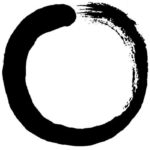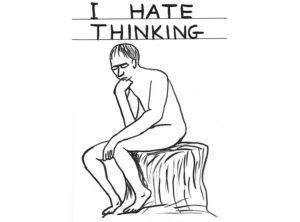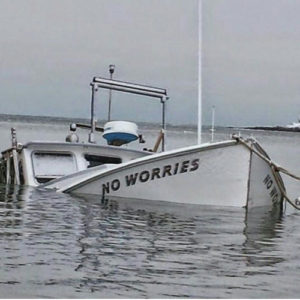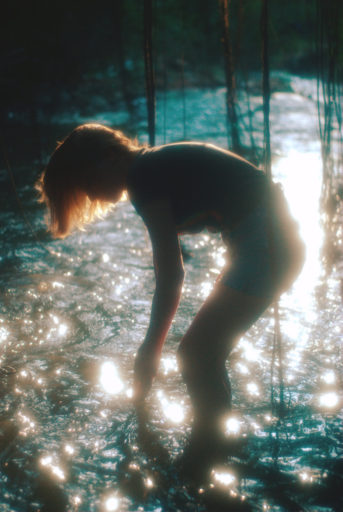00IV of potential hindrances to our creative development continued…
In the last post, I left off with the question: what is it about loving something that makes it feel easy? This is something I have wondered about almost obsessively. What I mean by ‘love’, in regards to creativity, is a non-resistant energy that holds our attention in the present moment. Sometimes I’ll think of it this way:
If the Universe is expanding it would make sense that creativity is the dominant current moving lifeward. If love (in the unconditional sense) is a process of least or no resistance, it would align with the momentum of the current of the greater universal energy. That would make it feel real easy—coasting downstream or ‘in the flow’. We would be using the energy of the current instead of the effort of our individual will power.
If you have heard of Taoism then you may be familiar with the term, “Wu Wei”—an ancient 
Eastern concept often translated as non-action or non-doing. This may be taken as sitting around like some lazy-ass waiting for something to happen— which is probably why it has also been interpreted as ‘action of non-action’ or ‘natural-action’. I am most fond of Alan Watts’ translation which is “don’t grasp the bird.” Let me just say that I couldn’t possibly attempt to properly explain this idea (I am not qualified and it resists explanation); I am only exploring my sense of it.
A more contemporary concept that appears synonymous with Wu Wei has been called The Law of Reversed Effort. Ever studied endless hours for a test and then forgot nearly everything as you were writing it? Have you tried to recall the name of someone or something and come up blank until you gave up and then you could remember it? As a former athlete, I am very familiar with trying too hard and it all falling apart (as I discussed earlier on) and it never feels good to try to make art. It’s fair to say that everyone has some sense of the ease of performing something in a relaxed state—times when we are taking action and, simultaneously, letting it happen. Philosopher and writer Aldous Huxley described this paradox as:
“The personal conscious self being a kind of small island in the midst of an enormous area of consciousness — what has to be relaxed is the personal self, the self that tries too hard, that thinks it knows what is what, that uses language. This has to be relaxed in order that the multiple powers at work within the deeper and wider self may come through and function as they should. In all psychophysical skills we have this curious fact of the law of reversed effort: the harder we try, the worse we do the thing.”

Art by David Shrigley.
So why does trying get in the way? Let’s consider what ‘doing’ is. All of us tend to want things to be a certain way and we’ve collected biases that direct our response to experiences in the world. Our desires and our likes and dislikes are like a filter placed on the world so that we deal with it according to our constructed idea of it. As far as I understand, this is the habit of the “personal self” that Huxley mentions above. This part of us can get super compulsive about interpreting (what does it mean?) and evaluating (is it good or bad?) and then we try to forcibly control our environment to fit our preferences. This kind of doing takes a tonne of energy because we are taking a resistant stance by being against what we think we don’t want. When we try to control our experience, it’s like we’re swimming upstream and this can create a lot of anxiety (because there is no guaranteed certainty in our control).
Perhaps not-trying or non-doing is trusting that our well-being already exists— we just tap into it by delighting in life without resistance, becoming super receptive and following our impulses with action that comes from that feeling of free calm clarity. If we are hustling hard to get particular things or conditions it’s probably because we think those external things will make us feel better and give us the calm clarity and a sense of freedom. But doing it this way is “grasping the bird.” So maybe the secret to finding ease is to choose to feel better first regardless of external conditions; letting go of the bird.
I realize that delighting in life may seem easier said than done; especially given all the (sometimes extreme) undesirable circumstances out there. I’ve had my share of slumps in life and admit that it doesn’t help to fight the floundering. But isn’t it the suffering experiences that help us find out how we thrive? (I went down the path of opposites co-existing in Chapter 2)
In ‘A Brief for the Defence’, Poet Jack Gilbert writes:
“If we deny our happiness, resist our satisfaction,
we lessen the importance of their deprivation.
We must risk delight. We can do without pleasure,
but not delight. Not enjoyment. We must have
the stubbornness to accept our gladness in the ruthless
furnace of this world. To make injustice the only
measure of our attention is to praise the Devil.
If the locomotive of the Lord runs us down,
we should give thanks that the end had magnitude.
We must admit there will be music despite everything.”
Someone once told me that we are always in the best of times and we are always in the worst of
times. I’ll admit that it’s much easier to point out what we consider to be wrong with the world than to appreciate its mysterious unfoldings. Have you ever noticed in a group when someone starts to complain someone else will try to one-up their struggle? Placing our attention on what we are genuinely curious about and fascinated by can be a bit of a reach beyond the common bitching. And as soon as we try to forcibly do this, it defeats the purpose. It’s like when someone tells us to try to be happy it somehow makes us focus on our unhappiness. We don’t want to be told about the river, we just wanna get in.
Do you remember what it felt like to play? Like, before organized games and competition?
When the imagination and will power are in conflict, are antagonistic, it is always the imagination which wins, without any exception.
–ÉMILÉ COUÉ
*Disclaimer: No copyright infringement intended. I do my best to track down original sources. All rights and credits reserved to respective owner(s). Email me for credits/removal.
